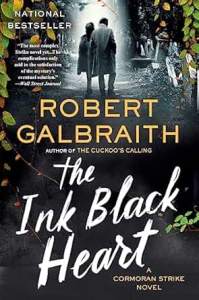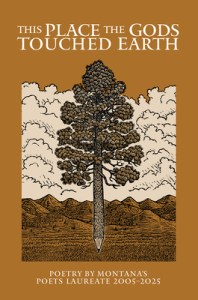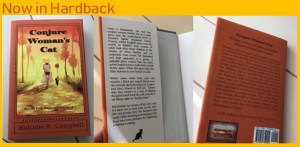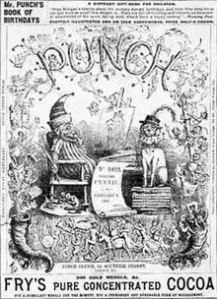Miscellany
- I am still furious about Facebook’s heavy-handed cancellation of my account because I supposedly ran afoul of the platform’s so-called “community standards.” Facebook is simply afraid to allow freedom of speech.
If you’re a fan of detective fiction, Robert Galbraith (aka Jo Rowling) has a treat for you ‘The Ink Black Heart’
From the publisher
 The latest installment in the highly acclaimed, internationally bestselling Strike series finds Cormoran and Robin ensnared in another winding, wicked case.
The latest installment in the highly acclaimed, internationally bestselling Strike series finds Cormoran and Robin ensnared in another winding, wicked case.
When frantic, disheveled Edie Ledwell appears in the office begging to speak to her, private detective Robin Ellacott doesn’t know quite what to make of the situation. The cocreator of a popular cartoon, The Ink Black Heart, Edie is being persecuted by a mysterious online figure who goes by the pseudonym of Anomie. Edie is desperate to uncover Anomie’s true identity.
Robin decides that the agency can’t help with this—and thinks nothing more of it until a few days later, when she reads the shocking news that Edie has been tasered and then murdered in Highgate Cemetery, the location of The Ink Black Heart.
Robin and her business partner, Cormoran Strike, become drawn into the quest to uncover Anomie’s true identity. But with a complex web of online aliases, business interests and family conflicts to navigate, Strike and Robin find themselves embroiled in a case that stretches their powers of deduction to the limits
Strike uses tried-and-true investigative methods rather than hacking into databases with his computer.
Malcolm
 Malcolm R. Campbell is the author of ‘Conjure Woman’s Cat’
Malcolm R. Campbell is the author of ‘Conjure Woman’s Cat’
 When I was five years old, the family nearly got into a car accident on the way home to Oregon from a trip to the California Bay area to see family. We are in our bulky 1949 Nash and nearly got run off the road by the flatbed truck we were passing.
When I was five years old, the family nearly got into a car accident on the way home to Oregon from a trip to the California Bay area to see family. We are in our bulky 1949 Nash and nearly got run off the road by the flatbed truck we were passing.

 Jeff Shaara’s latest novel “The Shadow of War” is transporting me back to the days of the 1960s Cuban missile crisis when Floridians thought they were about to have a front-row seat to nuclear war.
Jeff Shaara’s latest novel “The Shadow of War” is transporting me back to the days of the 1960s Cuban missile crisis when Floridians thought they were about to have a front-row seat to nuclear war.


 Used to be all it took to write satire was a good imagination and a love of dark humor. Now, those days are gone with the wind–and grieved, as Thomas Wolfe might say. I loved finding absurd government actions and making up stories that were much worse and more humorous.
Used to be all it took to write satire was a good imagination and a love of dark humor. Now, those days are gone with the wind–and grieved, as Thomas Wolfe might say. I loved finding absurd government actions and making up stories that were much worse and more humorous. And yet, with the calamity that’s befallen USAID, I can’t make myself write that kind of satirical story because–as it turns out–“Mad Magazine” has become the Feds’ policy manual. Think of the money that’s being saved by reading the magazine rather than drafting policies from scratch. Yeah, that’ll work until DOGE kills off the magazine.
And yet, with the calamity that’s befallen USAID, I can’t make myself write that kind of satirical story because–as it turns out–“Mad Magazine” has become the Feds’ policy manual. Think of the money that’s being saved by reading the magazine rather than drafting policies from scratch. Yeah, that’ll work until DOGE kills off the magazine.

 L
L o
o oking back takes time because it’s a long trip. I do remember reading All Quiet on the Western Front and knowing–even as I read it–I would carry the scars of that story forever. That book is one reason I became a pacifist. I’m not sure about everything I think I see while looking back because I’ve used so many of my personal stories in my fiction. So I wonder, did that really happen or did I make it up. Most of the people who could answer that question are gone or, perhaps, fictional. In my youth, the KKK was real and my first real fear. They were everywhere. They burnt a cross on my minister’s lawn. All that was too evil to make up so it made its way into my books. I changed the names of the people I knew who were members of the very visible invisible empire. The same goes for the real people in my Navy experience.
oking back takes time because it’s a long trip. I do remember reading All Quiet on the Western Front and knowing–even as I read it–I would carry the scars of that story forever. That book is one reason I became a pacifist. I’m not sure about everything I think I see while looking back because I’ve used so many of my personal stories in my fiction. So I wonder, did that really happen or did I make it up. Most of the people who could answer that question are gone or, perhaps, fictional. In my youth, the KKK was real and my first real fear. They were everywhere. They burnt a cross on my minister’s lawn. All that was too evil to make up so it made its way into my books. I changed the names of the people I knew who were members of the very visible invisible empire. The same goes for the real people in my Navy experience.